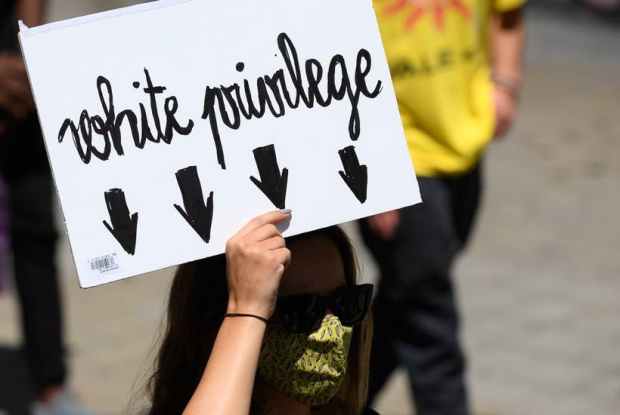The perfect storm of more than a decade of fiscal mismanagement and a “once-in-a-century shock” — Treasurer Josh Frydenberg – God helps if there is ever a real shock like a lasting global economic depression or another world war, or indeed a real deadly pandemic – has pushed Australia’s public finances beyond a point of no return. History, and not just ours, shows you never recover from these sorts of figures:
Australia’s response to the COVID-19 crisis will saddle the nation with a record $850bn gross debt bill and a combined budget blowout of almost $280bn by mid-next year, on the back of the government’s unprecedented response to firewall the economy and save millions of jobs.
The Australian can reveal that today’s pre-budget economic statement will reveal a budget deficit of just under $90bn for 2019-20, eclipsing last year’s pre-pandemic hopes of a $5bn return to surplus.
That will more than double for the current year to June 2021 to almost $190bn following record falls in revenue and investment and the $289bn the government has so far committed to fiscal stimulus.
The debt, which only 13 years ago stood at nothing and 7 years ago at $300 billion-plus, will no doubt soon climb to the big round trillion. We haven’t had a budget surplus since 2007-08, the last year of the Howard/Costello government. Sure, with first the Global Financial Crisis and now the COVID pandemic, all governments around the world find themselves challenged to the utmost, but the fact that very little happens in between the crises to genuinely repair the public finances means there is no breathing space at all once the next big one hits. And so, sadly, Australia now joins pretty much every other developed economy in being saddled with debt that pays for unsustainable public spending. Essentially, we’re getting our children and grandchildren to pay for our holidays today. In the past, it was the social democrats who thought this is a responsible way to run a country; nowadays it’s everyone. The left has won another ideological battle.
As the Treasurer says, “Ultimately, the high debt burden needs to be met by the government. What we want to do is not see any reduction in the services, or increases in the taxes, that’s not our track record.”
In other words, magic. Even without repaying the capital, the growing interest re-payments will put increasing pressure on the budget. We have to count on a steady and high rate of economic growth to increase the tax revenue if the government will not contemplate either increasing tax rates or cutting spending. Labor and the Greens would heartily support any and all tax hikes (or abolishing exemptions), not in order to repay or service the debt but to increase the government spending even more. No one, certainly not the political left, and now not even the political right, is willing to make any tough decisions regarding the hundreds of billions of dollars the federal government now spends on just about every aspect of our lives. Any “reduction in the services” is a no-no because our society has in a historically record time become accustomed to holding out its hands in expectation that no matter what problem or need, governments should pay for it. We no longer care if the money required has to be put on the big credit card or if taxpayers have to fork out even more for it – and by taxpayers, we don’t mean us; we mean some other unspecified taxpayers, particularly the amorphous “rich”, who should be doing more to subsidise all the things we like but can’t afford ourselves. It is only just. From each according to their ability, to each according to their need.
It has been said that the state makes war and war makes the state, but in recent history we have transcended such simple causal relationships. Sure, a crisis, any crisis, not even a war but a recession or a pandemic, helps to irreversibly expand the size and powers of the government, but no crisis is really necessary – now the state makes the state, all the time, and in every possible way. It’s the only thing that keeps consistently growing in our world. Some are worried about the possibly dangerous dystopian future where robots will manufacture other robots without the need for any human agency, but we already live in a reality where we have the public sector whose number one mission is to perpetually make more of itself – acquire and expend more resources, employ more people, reach into more and more aspects of life where no government has gone before, and extend its powers to provide, overseas, direct, regulate and proscribe. All for our own good and for the betterment of our society, of course.
Hapsburg Empress Maria Teresa was said to have wept when pressured to partition Poland with Prussia and Russia, prompting Prussia’s Frederick the Great to remark caustically “she wept but she took”. In the past, our politicians at least used to acknowledge reality and pay some lip service to the laws of economics and finance: there were always some trade-offs and some price to pay for the state largess – higher taxes, redirecting spending, or more borrowing that would have to be one day repaid. Now, adding to the perfect fiscal storm we’re experiencing, we have the growing popularity (so far only on the further reaches of the left, but slowly gaining undeserved respect and unsurprising popularity in the mainstream) of the so-called Modern Monetary Theory. This “theory” essentially says that budget deficits and government debt don’t matter; governments can spend as much as they like because they create money (in a straightforward sense of printing it, as opposed to generating tangible wealth). The ABC story linked to aboveis appropriately illustrated with a picture of a money tree because this is the basis of the MMT: money out of nothing and the cheques for free (with apologies to Dire Straits, coincidentally as appropriate name as any for our current fiscal predicament). It’s so easy; you make something out of nothing to have everything. Why hasn’t anyone thought about it before?
We live in increasingly unserious times, where economic and political discourse reads more and more like something out of Latin American magical realism literature – a “Hundred Years of Decrepitude” perhaps? In the past, at least some recognised the limitless growth of government was not a good idea; looking at the state of affairs today even Marx would have shrugged.
Arthur Chrenkoff blogs at The Daily Chrenk, where a version of this piece also appears.
Got something to add? Join the discussion and comment below.
Got something to add? Join the discussion and comment below.
Get 10 issues for just $10
Subscribe to The Spectator Australia today for the next 10 magazine issues, plus full online access, for just $10.


























Comments
Don't miss out
Join the conversation with other Spectator Australia readers. Subscribe to leave a comment.
SUBSCRIBEAlready a subscriber? Log in